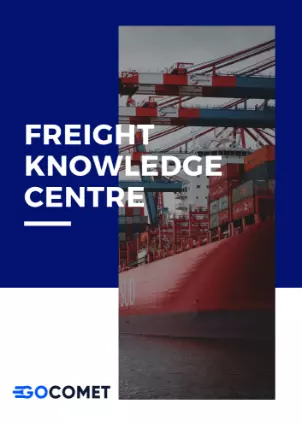Freight Knowledge Base Centre
Resources and FAQs on freight forwarding for logistics and supply chain professionals
Let us know where we can send you the pdf!
GoComet is the #1 AI Powered Transportation Platform Solution Built For Your Business
















What is the definition of a sustainable supply chain and what are its key components?
How does the concept of sustainability apply to each process in supply chain management?
What are the sustainability benefits of implementing Environmental Supply Chain Management?
How does Global Supply Chain Sustainability contribute to overall sustainability goals?
What are the main challenges in achieving sustainability through Global Supply Chain Management?
How do green practices in Supply Chain Management contribute to sustainability?
How can businesses improve the sustainability of their supply chains?
What is Environmental Supply Chain Management and how does it contribute to sustainability?
How can Environmental Supply Chain Management be implemented to enhance supply chain sustainability?
How does a responsible supply chain contribute to sustainability goals?
How do supplier sustainability programs enhance overall supply chain sustainability?
How are supply chain operations and sustainability interconnected?
What are the key metrics and software tools for conducting a sustainability analysis for supply chains?
Can you name some companies that are leading the way in sustainable supply chain management?
How does sustainable sourcing contribute to sustainability in supply chain management?
How do sustainable suppliers contribute to creating a sustainable supply chain?
What are some software solutions available for managing a sustainable supply chain?
How might sustainable supply chains evolve in the future with advancements in technology and data collection?
What are the main challenges in achieving sustainability through Global Supply Chain Management?
Achieving sustainability through Global Supply Chain Management presents several complex challenges that need to be addressed for successful implementation. These challenges include:
- Complexity and Fragmentation: Global supply chains often involve numerous suppliers, partners, and stakeholders across various countries and regions. Coordinating and managing sustainability initiatives across such a complex and fragmented network can be challenging.
- Cultural and Regulatory Differences: Different countries have varying cultural norms, regulations, and standards related to sustainability. Adapting practices to align with these differences while maintaining a consistent sustainability approach can be demanding.
- Supply Chain Transparency: Gaining full visibility into the practices of suppliers and sub-tier suppliers across global supply chains can be difficult. Ensuring transparency and traceability throughout the chain is crucial for verifying sustainable practices.
- Ethical Sourcing and Labor Conditions: Ensuring ethical sourcing and fair labor practices across diverse geographic areas can be challenging due to differing labor laws, working conditions, and cultural norms.
- Logistical Challenges: Managing transportation and logistics for global supply chains involves significant energy consumption and emissions. Finding efficient and sustainable transport solutions across long distances is a persistent challenge.
- Communication Barriers: Language barriers and time zone differences can hinder effective communication and collaboration among stakeholders in different parts of the world.
- Data Collection and Verification: Gathering accurate and reliable sustainability data from diverse sources can be complicated. Verifying the accuracy of this data can be challenging, particularly when dealing with suppliers from different regions.
- Risk Management: Global supply chains are vulnerable to disruptions such as geopolitical events, natural disasters, and global economic shifts. Integrating sustainability practices into risk management strategies requires careful consideration.
- Supplier Engagement: Encouraging suppliers to adopt sustainable practices can be met with resistance due to concerns about costs, cultural differences, or lack of awareness.
- Cost Considerations: Implementing sustainable practices, such as using renewable energy or sourcing eco-friendly materials, can come with initial cost implications. Balancing these costs with long-term benefits can be a challenge.
- Changing Regulations: Different countries often have evolving regulations related to sustainability, which can impact supply chain operations. Keeping up with these changes and ensuring compliance is an ongoing challenge.
- Conflict Minerals and Human Rights: Ensuring that supply chains are free from conflict minerals and adhere to human rights standards requires thorough due diligence and continuous monitoring.
- Technology Integration: Adopting technology solutions to support sustainable supply chain practices can be challenging due to varying levels of technological readiness among suppliers and partners.
- Long Supply Chains: Long distances in global supply chains can lead to increased transportation emissions and higher energy consumption, especially in industries with complex manufacturing processes.
- Resistance to Change: Implementing sustainability initiatives often requires changing established practices and mindset. Overcoming resistance to change within an organization and among partners can be difficult.
Addressing these challenges requires a combination of innovative strategies, collaboration, stakeholder engagement, technology adoption, and a commitment to long-term sustainability goals. As the CO2 module is introduced in the GoTrack product, it can assist businesses in navigating these challenges by providing tools to track and manage carbon emissions, promoting transparency, and facilitating sustainable decision-making within global supply chains.
